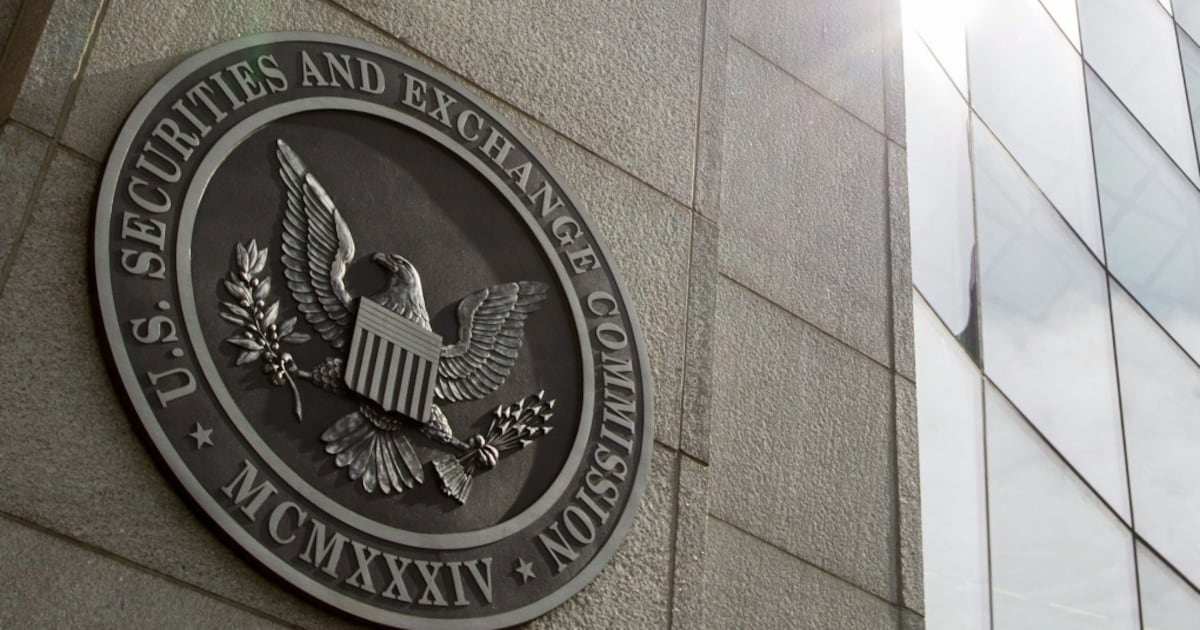Business
BlackRock and Vanguard Reduce Engagements as SEC Guidance Tightens

The world’s two largest asset management firms, BlackRock and Vanguard, have significantly decreased their interactions with company executives this year. Disclosures reveal that the number of meetings held by both firms has dropped sharply due to new guidance from the U.S. Securities and Exchange Commission (SEC). This guidance, issued in February 2024 and influenced by political appointee Mark Uyeda, complicates discussions on critical issues like climate change and diversity.
The decline in engagements, documented in recent disclosures, shows a reduction of 28 percent for BlackRock and an even steeper 44 percent for Vanguard compared to the previous year. This shift could result in corporate executives receiving less input from major investors about strategic decisions, potentially leading to unexpected critical votes at shareholder meetings. According to consultants, these changes indicate a worrying trend of diminished dialogue between shareholders and management, especially on pressing matters beyond contentious political issues.
“The new guidance, whether intentional or not, created a chilling effect on the largest investors,” said Peter da Silva Vint, a former BlackRock executive now with corporate advisory firm Jasper Street Partners. He noted that fund managers often arrive at meetings in a “listen-only mode,” which makes it difficult for company leaders to gauge how their votes might lean.
The SEC’s new directives require asset managers to file more complex and costly reports if they exert pressure on management, such as making director votes contingent on adherence to certain environmental policies. This requirement is triggered if a firm implies it will not support directors unless specific changes are made in alignment with its voting policy. An SEC representative declined to comment on the implications of these changes.
The impact of this guidance is particularly pronounced for BlackRock and Vanguard, which manage a combined total of USD 22 trillion in assets. Their significant ownership stakes often exceed five percent in many companies, placing them in a unique position to influence corporate governance. Both firms have adjusted their engagement strategies in light of the new rules.
BlackRock’s stewardship team reported meeting with companies worldwide 2,584 times over the 12 months ending June 30, 2024. This represents a 28 percent decrease from the previous year. Most of these engagements occurred after the SEC’s guidance was issued on February 11, highlighting its direct impact on investor-company interactions. Paul Schulman, a senior managing director for proxy solicitor Sodali, emphasized that the new guidance was “100 percent the cause” of the decline in meetings.
Even when meetings occur, investment firms are reportedly less communicative about their voting intentions. Schulman remarked that top investment firms have always been cautious about revealing how they will vote, but the current environment has made them even more reticent. BlackRock’s recent report suggests a shift in strategy, indicating that its stewardship team is now focused on listening to company directors and executives to understand how they manage business risks and opportunities.
In a notable contrast, last year’s report depicted BlackRock’s stewardship team as more vocal about their concerns during engagements. The firm previously stated, “we typically raise these through dialogue with board members and management teams first.” When approached for comment, a BlackRock representative reiterated that the firm “does not use engagement as a way to control publicly traded companies.”
Vanguard’s engagement strategy mirrors that of BlackRock. An August 21 report indicated that Vanguard met with 356 companies globally from April through June 2024, a sharp decline from 640 meetings in the same period the previous year. The firm did not address this decline in its report, and its representatives declined further comment. A Vanguard representative maintained that the company “does not, and never has, used engagements with companies to signal our voting intentions.”
The new SEC guidance has created a more challenging environment for corporate governance. Paul Washington, chief executive of the Society for Corporate Governance, noted that the recent regulations limit the effectiveness of shareholder discussions. “This season, companies found it harder to know what their major investors were thinking,” he stated.
A survey conducted among members of the Society for Corporate Governance revealed that over a quarter of public company representatives experienced a “more challenging engagement environment” this year, with difficulties in maintaining relationships with investors and gauging their views.
In summary, the regulatory landscape is evolving, and the implications of the SEC’s new guidance are reshaping the way major asset managers interact with corporate executives. The reduced number of meetings signifies a shift in corporate governance dynamics, potentially leading to unforeseen consequences for companies and their investors.
-

 Politics4 weeks ago
Politics4 weeks agoSecwepemc First Nation Seeks Aboriginal Title Over Kamloops Area
-

 World5 months ago
World5 months agoScientists Unearth Ancient Antarctic Ice to Unlock Climate Secrets
-

 Entertainment5 months ago
Entertainment5 months agoTrump and McCormick to Announce $70 Billion Energy Investments
-

 Science5 months ago
Science5 months agoFour Astronauts Return to Earth After International Space Station Mission
-

 Lifestyle5 months ago
Lifestyle5 months agoTransLink Launches Food Truck Program to Boost Revenue in Vancouver
-

 Technology3 months ago
Technology3 months agoApple Notes Enhances Functionality with Markdown Support in macOS 26
-

 Lifestyle3 months ago
Lifestyle3 months agoManitoba’s Burger Champion Shines Again Amid Dining Innovations
-

 Top Stories2 months ago
Top Stories2 months agoUrgent Update: Fatal Crash on Highway 99 Claims Life of Pitt Meadows Man
-

 Politics4 months ago
Politics4 months agoUkrainian Tennis Star Elina Svitolina Faces Death Threats Online
-

 Sports5 months ago
Sports5 months agoSearch Underway for Missing Hunter Amid Hokkaido Bear Emergency
-

 Politics5 months ago
Politics5 months agoCarney Engages First Nations Leaders at Development Law Summit
-

 Technology5 months ago
Technology5 months agoFrosthaven Launches Early Access on July 31, 2025





















